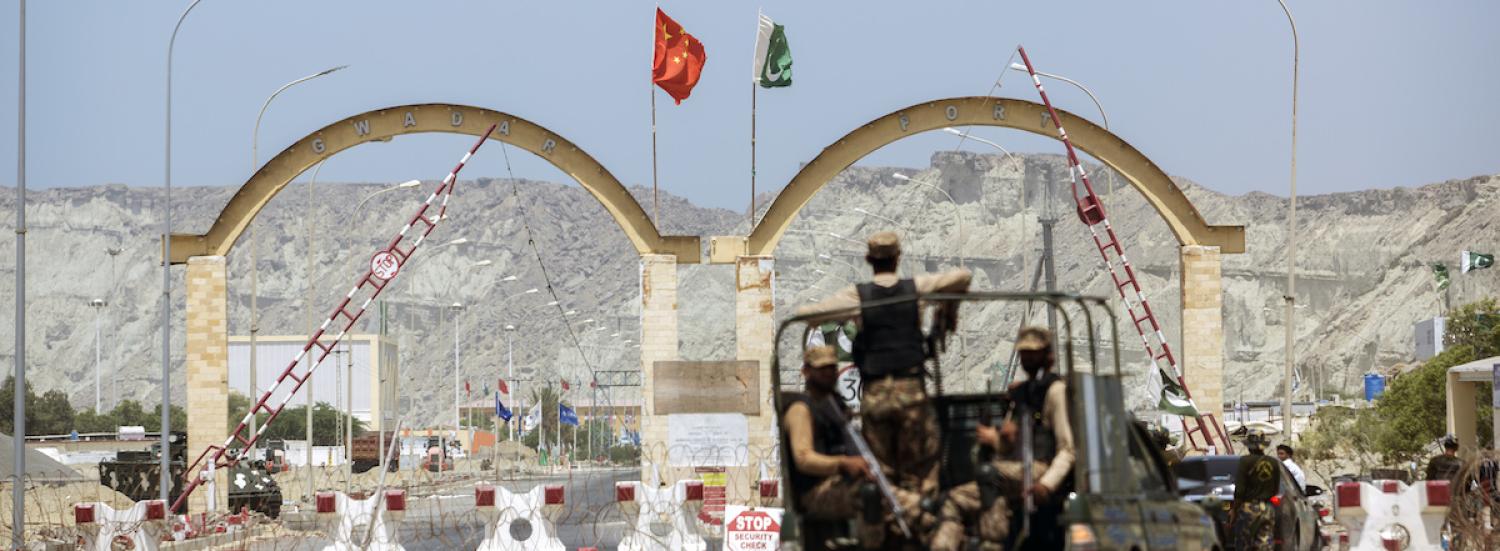Saudi Arabia was the first country Imran Khan visited after assuming office as Pakistan’s new Prime Minister. As he made the trip last month, he asked for financial help for Pakistan’s turbulent economy.
Soon after his return, it was announced that Pakistan had invited Saudi Arabia to join the China-Pakistan Economic Corridor (CPEC) as a third partner.
A six-member Saudi Arabian delegation then visited Pakistan’s Gwadar port to receive briefings about the port’s ongoing projects. It was later announced that Saudi Arabia will build a $9 billion oil refinery in Gwadar with a capacity of 500,000 barrels per day. During this visit the Pakistani government also hinted at a handover of the operational control of the Reko Diq copper-gold mines to Saudi Arabia.
The sudden dragging of Saudi Arabia into the CPEC equation has earned the Pakistani government the ire of China.
These two mega-offers along with the invitation to join CPEC were financially motivated. Pakistan’s foreign exchange reserves can currently finance the imports of the country for under two months. It needs a $10-12 billion bailout package urgently, which it initially sought from a reluctant China.
Given the chaos and political instability in Pakistan, Khan’s offers to Saudi Arabia soon fuelled controversy.
Opposition parties in Balochistan province protested the proposed handing over of the Reko Diq mines. They argued that mineral resources fall under provincial domain and that the federal government cannot bypass the Balochistan government and directly sign an agreement about Reko Diq project.
There was also opposition from China and Iran over Khan’s sudden move to invite Saudi Arabia into CPEC. The project had always been a bilateral one. China had never envisioned a third and equal partner. Likewise, Iran had reservations on a Saudi-controlled project located just 90 kilometres from the Iranian border. China and Iran's displeasure – possibly conveyed through track-two diplomacy channels – was expressed in the background just before Pakistan backtracked on its offer to Saudi Arabia.
Pakistan announced that Saudi Arabia will not be a part of CPEC but that it can still invest in individual projects just like another country. Withdrawing the CPEC partnership offer to Saudi Arabia presumably meant that the Pakistani government also gave up on any hopes of a Saudi-financed bailout.
In the past, Saudi Arabia has helped Pakistan by not only providing financial aid but also deferring payments of the oil that it sold to Pakistan. This time around, the Pakistani government was eyeing both of these benefits. Saudi Arabia, for its part, did not express much enthusiasm to help Pakistan, given this exchange failed to offer it any strategic benefits.
Once the hopes of financial bailout from Saudi Arabia vanished, Imran Khan’s government finally agreed to swallow the bitter pill of an International Monetary Fund (IMF) bailout. Pakistan’s government has since formally asked the IMF for a financial bailout package. This decision would have weighed heavily on Khan as he had built his entire election campaign on economic self-reliance and avoiding an IMF bailout. It was natural then, that his government faced a barrage of criticism after his decision to go to the IMF was announced.
The offer for Saudi Arabia to build an oil refinery in Gwadar is still intact. It is still possible that Saudi Arabia agrees to invest in this project. However, it will be on purely commercial terms where Saudi Arabia will reportedly ask for a 16% rate of return based on sovereign guarantees.
In the coming days we may see China oppose the project due to all the investments it has made in the Gwadar. It is unlikely that China will support a mega-oil refinery under the control of another country in Pakistan. The prospects of a Saudi-financed oil refinery are murky.
Due to the sudden dragging of Saudi Arabia into the CPEC equation, the current government of Pakistan has earned the ire of China. This could potentially result in a cutting down of funding for certain CPEC projects in Pakistan. This may subsequently result in further political instability in Pakistan.
The move to bring Saudi Arabia into the CPEC fold did not bode well for Imran Khan’s government.

